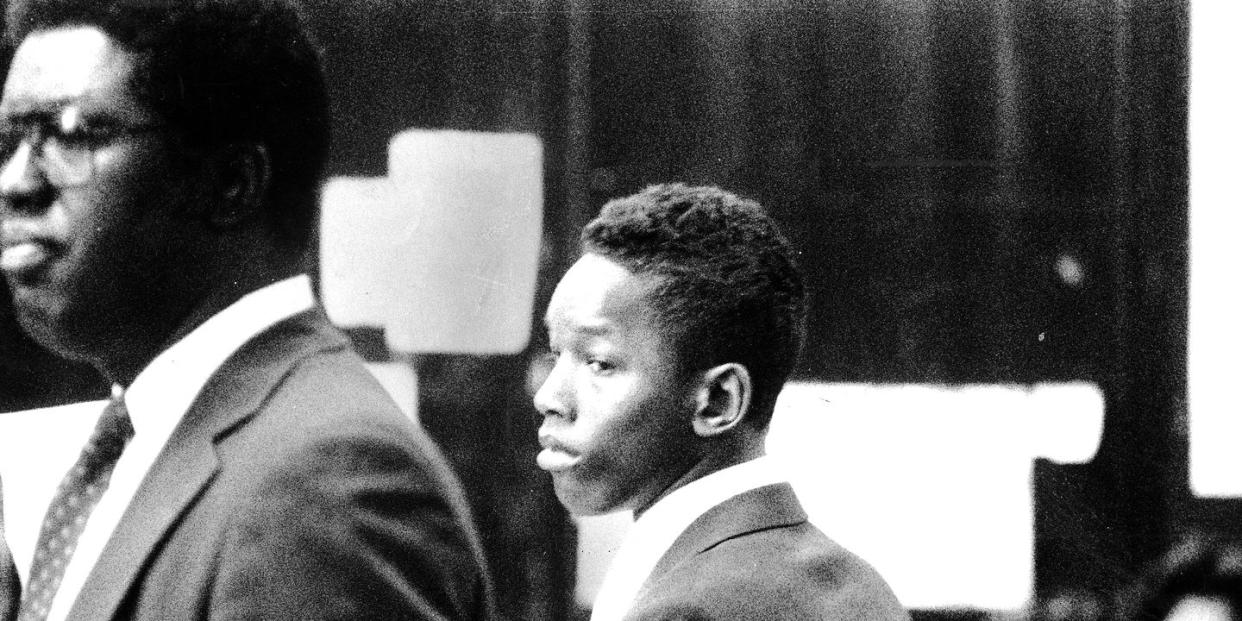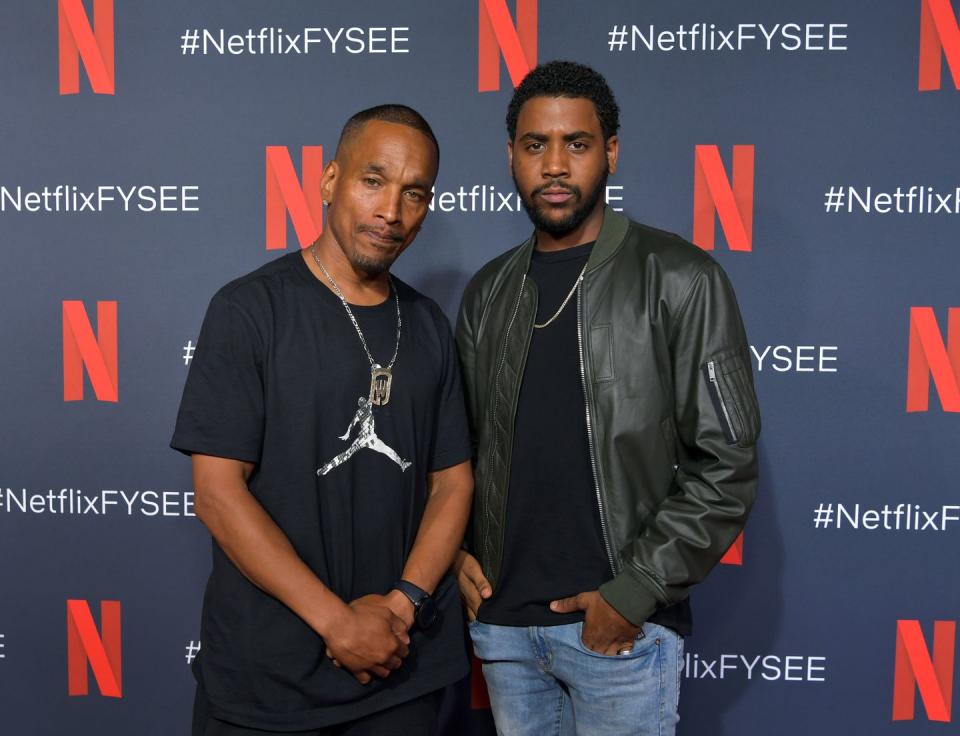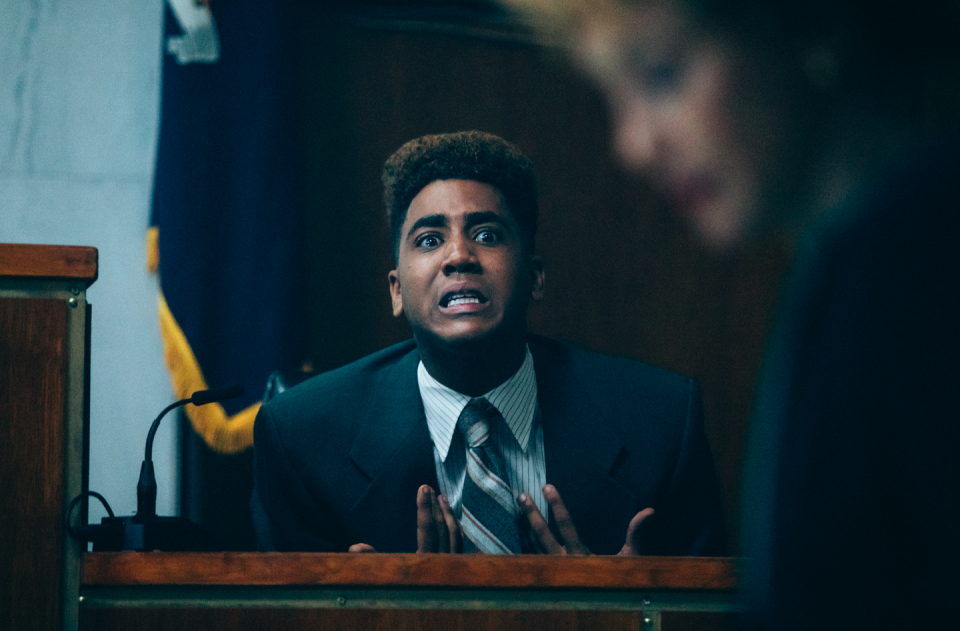The Heartbreaking True Story of The Central Park Five's Korey Wise

Jharrel Jerome is nominated for an Emmy for his performance in Ava DuVernay's acclaimed When They See Us.
Jerome's performance as Korey Wise, the eldest of the Central Park Five, has drawn rave reviews and was singled out for praise by Oprah Winfrey.
Wise has an extraordinary story, having become an activist since the charges against him and the four other wrongfully accused men were overturned in 2002.
Here are a few key things to know about Wise's story and where he is now.
Ava DuVernay's devastating Netflix series When They See Us, which tells the true story of the Central Park Five, has been deservedly showered with praise since its May debut, and it picked up 16 Emmy nominations ahead of this weekend's awards. One of the standout performances–in a pretty flawless cast–is Jharrel Jerome, whose work as Korey Wise was so powerful that Oprah Winfrey herself singled him out for praise.
The Central Park Five, now re-christened the Exonerated Five, were five Black and Latino teenagers who, in 1989, were wrongfully convicted of attacking and raping a white woman. The eventual acquittal of Wise, Kevin Richardson, Antron McCray, Raymond Santana, and Yusef Salaam, came only after all five men had served their time.
Wise, now 47, was the oldest of the five, and the only one to be tried as an adult. He was ultimately convicted of sexual abuse, assault, and riot. The five faced sentences that ranged from five to 15 years in prison, and Wise spent close to 12 years at Rikers Island. Since his exoneration, he's become an activist. Below is a primer on Wise's extraordinary true story.

As depicted in When They See Us, Wise went voluntarily to the police station to accompany his younger friend, Yusef Salaam, who had been brought in for questioning as police began their search for suspects. "Yusef—that’s my boy," Wise has told The New York Times, "That’s my little childhood brother there. We were just baby boys, we were just trying to be entrepreneurs, having fun being kids." Wise was not a suspect at the time, but after going along to support Salaam, he ended up being interrogated too.
Because Wise was 16 at the time, he was legally allowed to be questioned without a parent or guardian present. Per the Times, he was "a gentle, emotionally stunted boy, his problems amplified by his hearing loss," and his "development was severely delayed and his ability to comprehend his complicated and sometimes dangerous surroundings was woefully inadequate."
Needless to say, none of this was taken into account by police when they questioned him. By the end of his lengthy interrogation, Wise had given multiple statements and recorded two videotaped confessions, all of which contradicted each other and were inconsistent with the established facts of the crime. For example, Wise says in one of his recordings that the victim was stabbed with a knife, which she was not. Wise later stated that the police intimidated and coerced him into giving a false confession.
Despite a lack of physical evidence tying any of them to the crime, all five were found guilty of various charges. At the first trial in August of 1990, Salaam, McCray, and Santana were acquitted of attempted murder, but convicted of rape, assault, robbery, and riot. In a second trial later that year, Richardson was convicted of attempted murder, rape, assault, and robbery, while Wise was convicted of sexual abuse, assault, and riot. Wise was sent to Rikers Island, where he would spend the next 12 years of his life. The other four all spent between five and 10 years at a youth correctional facility.

"We had all gone through hell. But when I saw this series, I immediately realized that we were in paradise compared to the hell that Korey was in," Salaam told The New York Times of Wise's ordeal in Rikers. "His was unrelenting. I went to jail and I was able to get a college degree. He never got an opportunity to breathe, to meditate, to just say, 'Phew, man, that was really crazy today. Let me kick my feet up a little bit and read this magazine.'"
During his time in prison, Wise met Matias Reyes, a murderer and serial rapist who ultimately confessed to raping the jogger, also confirming that he acted alone. Reyes's specific knowledge of the details of the crime, along with a DNA test, confirmed that he was guilty. Wise was released from prison in 2002 after 12 years.
Following his release, the group's charges were vacated, and they filed a lawsuit against the city of New York, and after more than a decade the case was finally settled for $41 million. Wise still lives in the city, in his old neighborhood (Harlem), and works as a criminal justice activist and public speaker. In 2015, he pledged $190,000 to support the Innocence Project at the University of Colorado Law School, which was subsequently renamed in his honor.
"The hardest part of playing Korey was finding his happy moments and finding his moments where he’s flirting with Lisa [played by Storm Reid], chilling with the homies or hanging out, smiling," Jerome told The New York Times. "It was hard to find those moments because you don’t see that unless you actually meet the man and see him smile yourself. He’s unique, and everything about him is unique. So it wasn’t about being Korey Wise, it was about embracing him."
For more stories like this, sign up for our newsletter.

